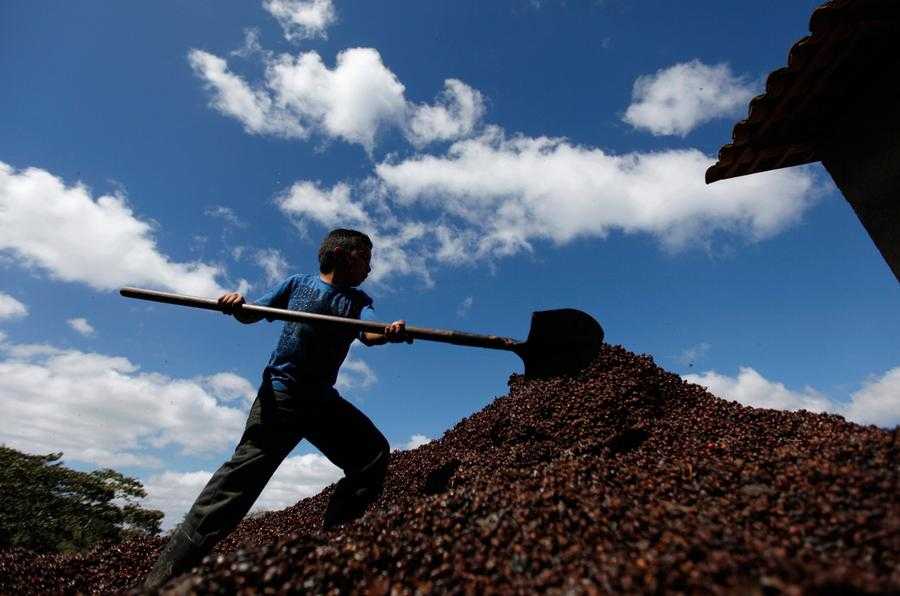The British newspaper The Guardian published an article this week, “Nestlé admits slave labour risk on Brazil coffee plantations.” The subtitle sums it up: “Nestlé and Jacobs Douwe Egberts say beans from Brazilian plantations using slave labour may have ended up in their coffee.”
The article is based on an extensive investigation by the Danish independent media and research center Danwatch. Nestlé admitted it had obtained coffee from farms found to have poor labor conditions resembling slavery. Jacobs Douwe Egberts (JDE) conceded “it was possible” they did, too.
Labor practices are outside the wheelhouse of C&C coverage; you can read the entire Danwatch report here.
But I want to point out here that this is not the first time these companies have been caught buying coffee grown under illegal or unethical conditions. It’s why I advocate for not buying supermarket coffee from large corporations and why I am so skeptical of their “sustainability” claims.
The companies
Most people are familiar with the mega-giant transnational food and beverage company Nestlé. They own the coffee brands Nescafé, Nespresso, and Taster’s Choice, as well as other international brands.
The name Jacobs Douwe Egberts (JDE) is probably unfamiliar to most people outside of Europe, and the company has a rather convoluted pedigree.
It was created in 2015 after a merger between Mondelēz International (which had previously taken over most of the coffee brands of Kraft Foods) and European coffee giant D.E Master Blenders 1753 (which itself was spun off from the coffee business of Sara Lee Corp.).
Coffee brands include Maxwell House, Gevalia, Kenco, Tassimo, and Senseo, plus many international brands.
The privately held JAB Holding Company owns the majority share in JDE. It also has majority stakes in Peet’s Coffee and Tea, Caribou Coffee, Keurig Green Mountain, Einstein Noah, and (via Peet’s) Intelligentsia and Stumptown.
Nestlé and JDE together control approximately 18% of global coffee production, and over 40% of global retail market share.
Caught before
In 2007, a World Wildlife Fund report revealed that coffee illegally grown in Sumatra was being purchased by Nestlé and Kraft (most of Kraft’s coffee business is now controlled by Jacobs Douwe Egberts, see above) and other large coffee buyers.
Land was being cleared in a national park to grow coffee, threatening habitat for endangered elephants, rhinos, and other wildlife.
At the time, Nestlé admitted the difficulty of determining the precise origin of their coffee. Nearly a year later, in an ABC News follow-up story, Nestlé made the cavalier comment “It might come – we have no way of knowing – from illegal sources. Law enforcement is not our task.”
Indeed, the enormous amount of coffee purchased by Nestlé, JDE/Kraft, and Smucker’s (Folgers) follows a complex supply chain that would require effort and investment to ensure it does not originate under dubious conditions. It isn’t as if these companies can’t afford it. They make hundreds of millions (in Nestlé’s case, tens of billions) in profits annually.
You can read more about Nestlé’s various sustainability claims, and my take on them, from this page.
As for JDE, the fact that the majority owner (JAB) is privately held will only reduce transparency regarding their supply chain, including that of many of their acquisitions.
JAB is engaged in a quest to dominate the global coffee scene. I can’t see how this race, a competition with its main rival Nestlé, can advance the cause of coffee grown in a manner that is sustainable to farmers or the environment.
Epilogue regarding other buyers
Starbucks was also implicated in receiving illegally-grown Sumatran coffee in 2007. Prior to 2007, only about half of Starbucks’ coffee was sourced under their CAFÉ Practices guidelines, which identifies their suppliers and requires various criteria and transparency, verified by a third party.
Now greater than 96% is sourced through this program. In the current Brazilian case, Starbucks told Danwatch that while they had done business with cooperatives and/or middlemen connected with the guilty farms, they knew each of their farm sources and did not obtain coffee from the farms in question.
McDonald’s and Dunkin Donuts were also mentioned in the Danwatch report because they use the Canadian distributor Mother Parkers, which in turn purchased coffee from a Brazilian firm that may have gotten coffee from one of the implicated farms.
McDonald’s responded that their communication with suppliers indicated conditions described by Danwatch were not present in their supply chain.
I’ll add that McDonald’s has been making considerable efforts in cleaning up their coffee supply chain. They have a goal of sourcing 100% of their coffee from verified sustainable sources by 2020, and are about a third of the way there. I’ll be writing a post about their progress in these efforts.
Dunkin Donuts response was more vague: “Dunkin’ Brands will continue to communicate and enforce our code of conduct standards throughout our coffee supply chain. Any material breach of this Code that does not have an immediate corrective action plan would result in termination of the supplier’s approval status.”
They gave this same answer to multiple questions from Danwatch.
You can read all the correspondence between Danwatch and the various buyers at the bottom of this report page.
















